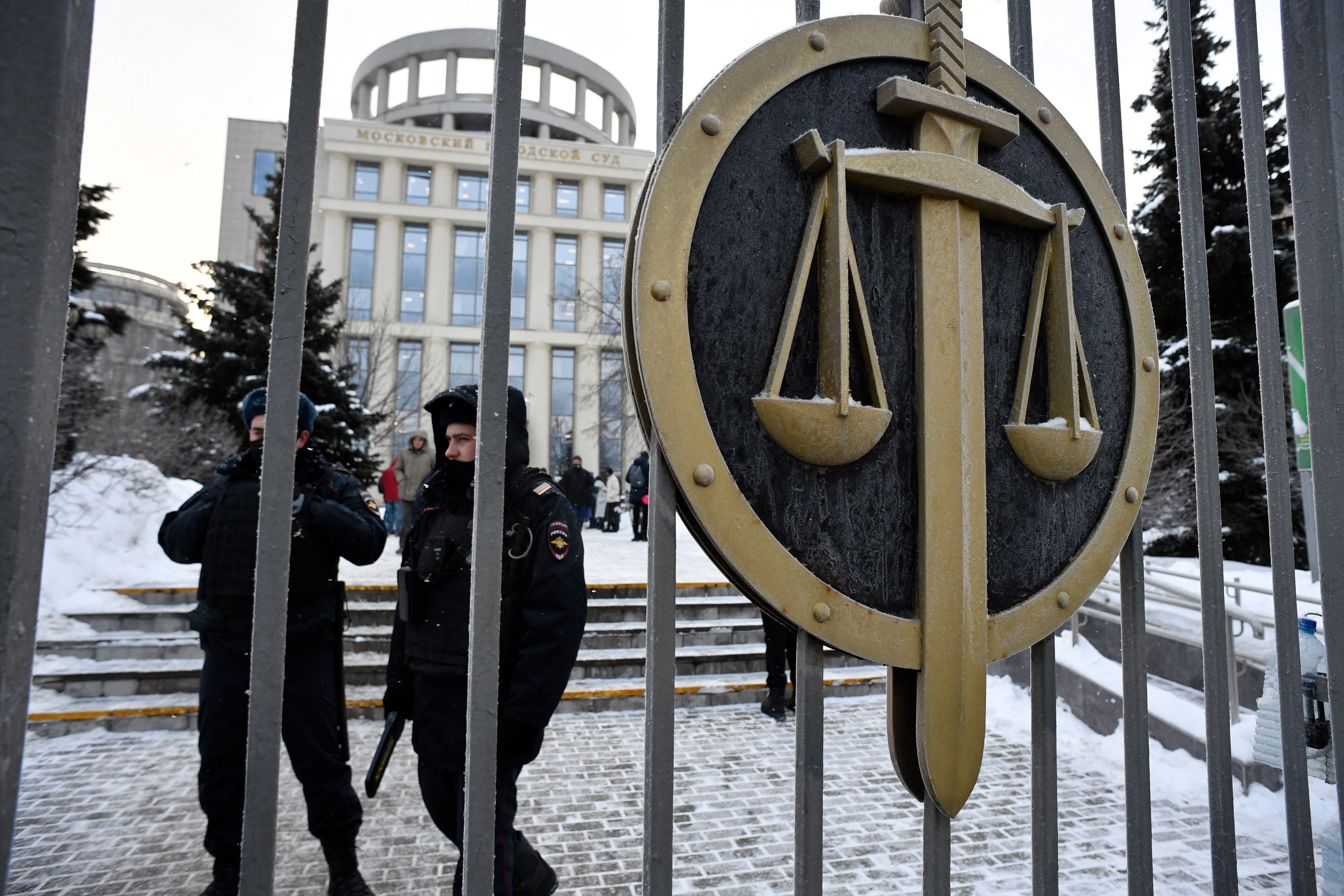Russia closes another human rights group in crackdown on civil society
Closure of the Memorial Human Rights Centre comes a day after its sister organisation was shuttered

Your support helps us to tell the story
From reproductive rights to climate change to Big Tech, The Independent is on the ground when the story is developing. Whether it's investigating the financials of Elon Musk's pro-Trump PAC or producing our latest documentary, 'The A Word', which shines a light on the American women fighting for reproductive rights, we know how important it is to parse out the facts from the messaging.
At such a critical moment in US history, we need reporters on the ground. Your donation allows us to keep sending journalists to speak to both sides of the story.
The Independent is trusted by Americans across the entire political spectrum. And unlike many other quality news outlets, we choose not to lock Americans out of our reporting and analysis with paywalls. We believe quality journalism should be available to everyone, paid for by those who can afford it.
Your support makes all the difference.A court in Moscow has ruled to shut down another prominent human rights organisation amid a sweeping crackdown on Russian rights groups, independent media and opposition supporters.
The decision to shut down the Memorial Human Rights Centre by the Moscow City Court on Wednesday comes a day after Russia's Supreme Court revoked the legal status of its sister organisation, Memorial, an international human rights group that drew international acclaim for its studies of political repression in the Soviet Union.
Both organisations had been labeled "foreign agents" in previous years — a designation that brings with it additional government scrutiny and strong pejorative connotations. In their petitions to shut both groups down, filed to two different courts last month, the prosecutors argued that the organizations repeatedly violated regulations obliging them to mark themselves as foreign agents.
Memorial and the Memorial Human Rights Centre rejected the accusations as politically motivated. The rulings to shut them down drew widespread public outrage, with crowds of supporters showing up at courthouses on Tuesday and Wednesday despite freezing weather.
Russian authorities in recent months have mounted pressure on rights groups, media outlets and individual journalists, naming dozens as foreign agents. Some were declared "undesirable" — a label that outlaws organisations in Russia — or were accused of links to "undesirable" groups, and several were forced to shut down or disband themselves to prevent further prosecution.
On Saturday, the authorities blocked the website of OVD-Info — a prominent legal aid group that focuses on political arrests — and urged social media platforms to take down its accounts after a court ruled that the website contained materials that "justify actions of extremist and terrorist groups." The group rejected the charges as politically driven.
On Tuesday, Moscow city authorities served another prominent human rights group with an eviction notice. The Civic Assistance Committee that helps refugees and migrants in Russia said officials handed the organisation a document voiding the agreement allowing the use of the space without compensation and ordered it to leave within a month.
"The Civic Assistance will be fighting (this)," the organisation's chair Svetlana Gannushkina said.
Both Memorial organisations have promised to appeal the rulings revoking their legal status and vowed to continue their work.
A number of Russian NGOs in recent years switched to operating as informal entities in order to not be affected by restrictive laws.
British Foreign Secretary Liz Truss said on Wednesday she was deeply concerned by the liquidation of Memorial, saying its closure was another “chilling blow to freedom of expression in Russia”.
Reuters



Join our commenting forum
Join thought-provoking conversations, follow other Independent readers and see their replies
Comments